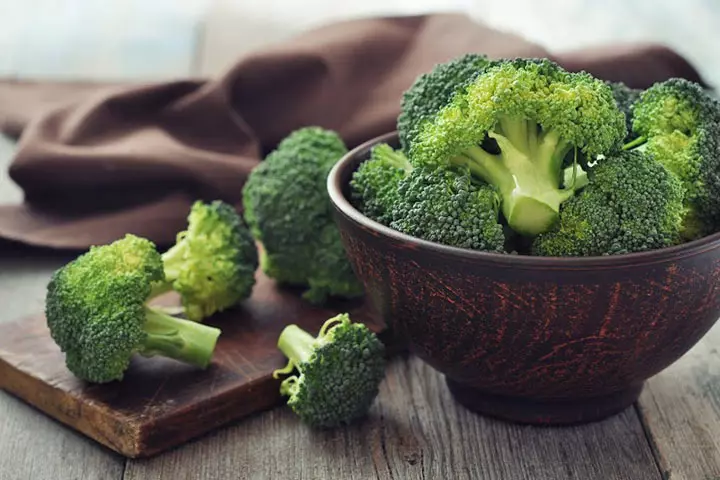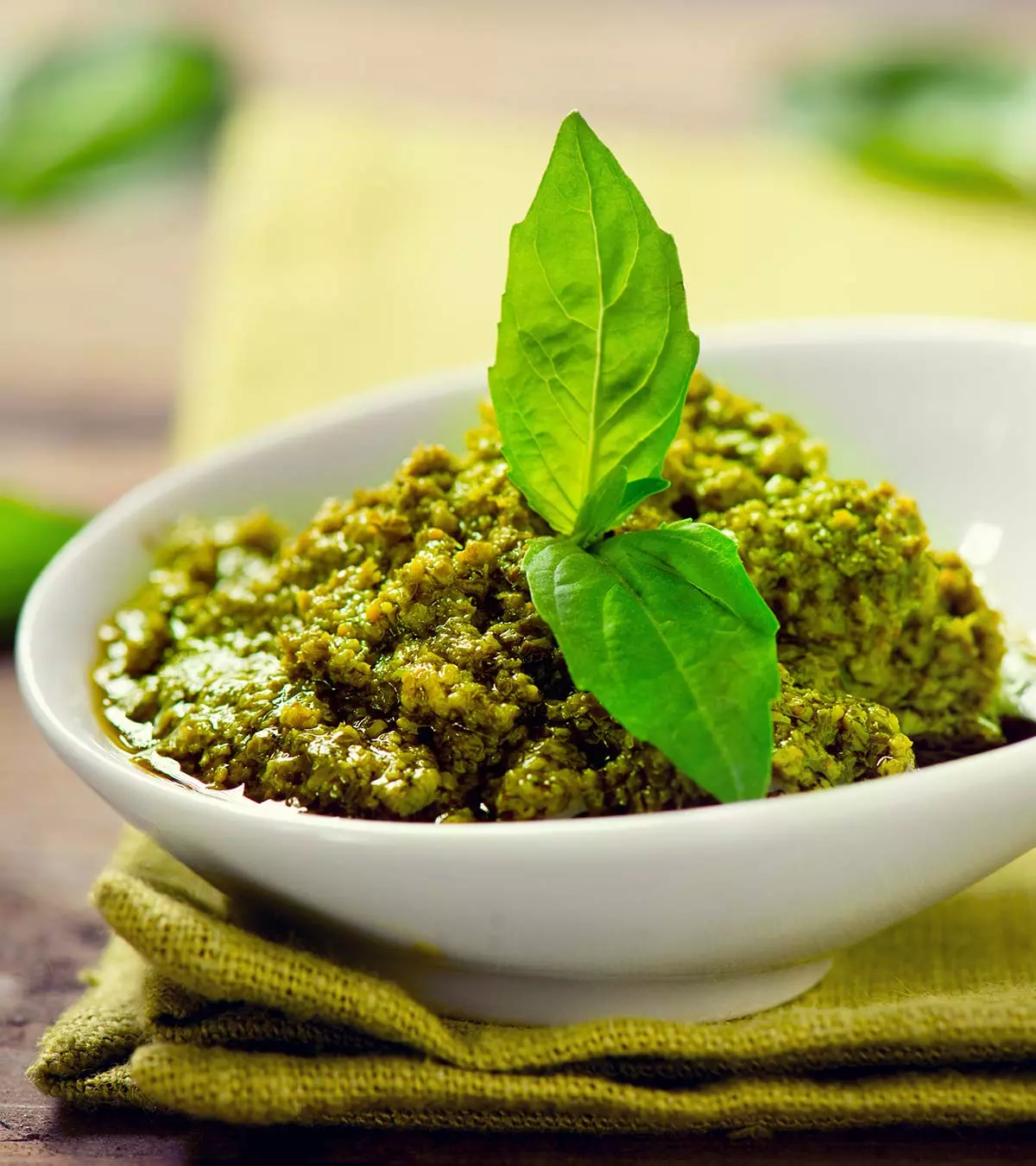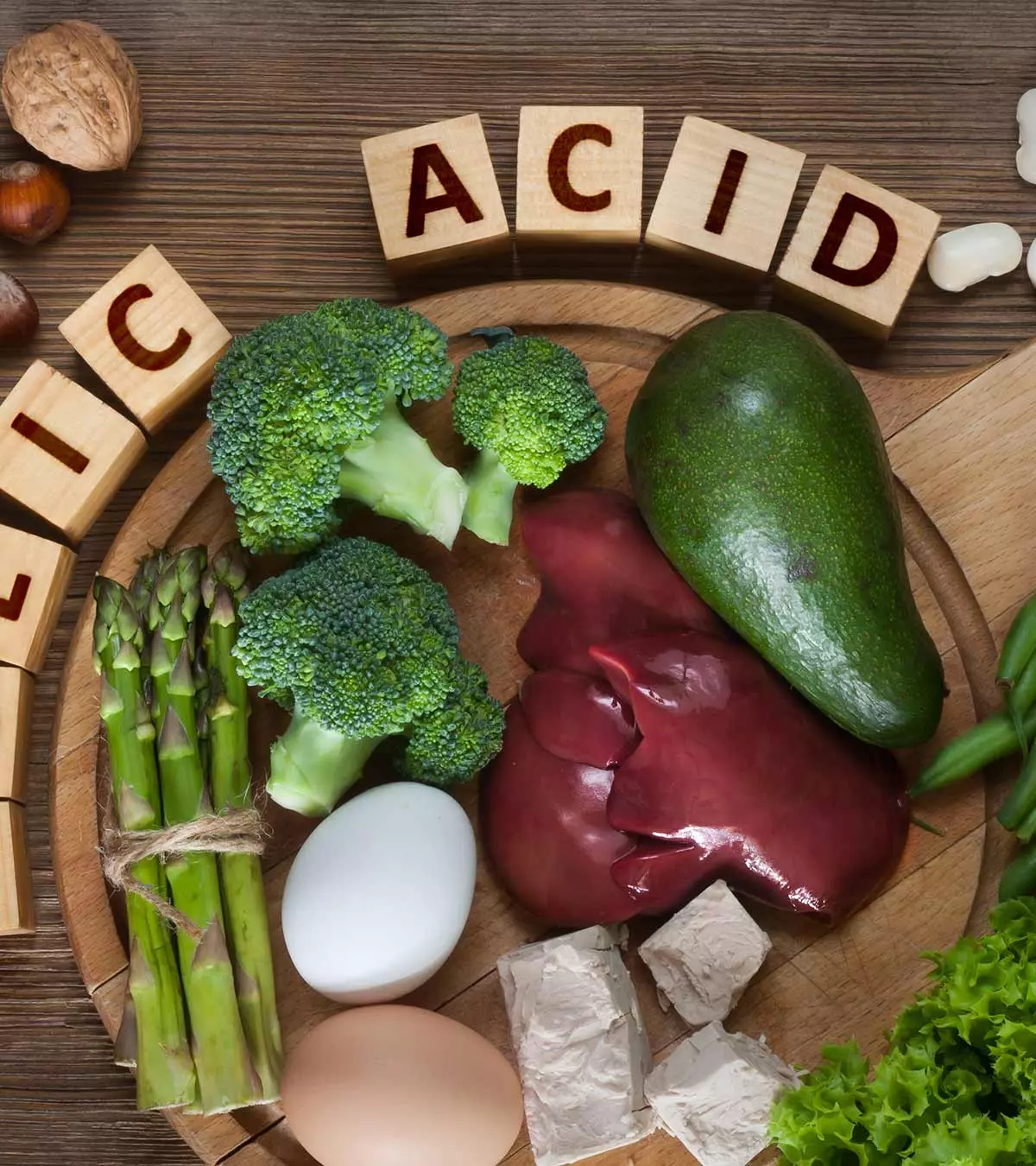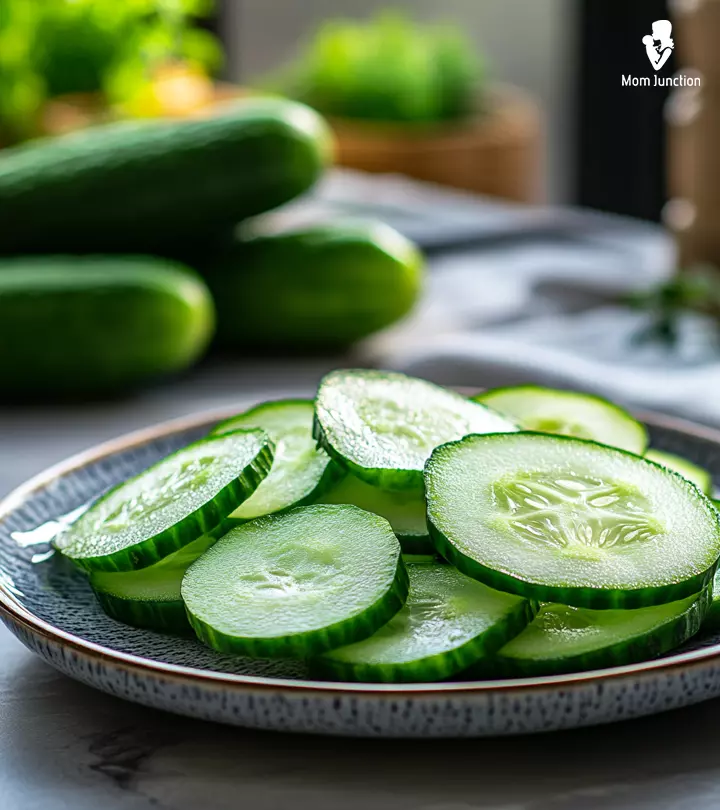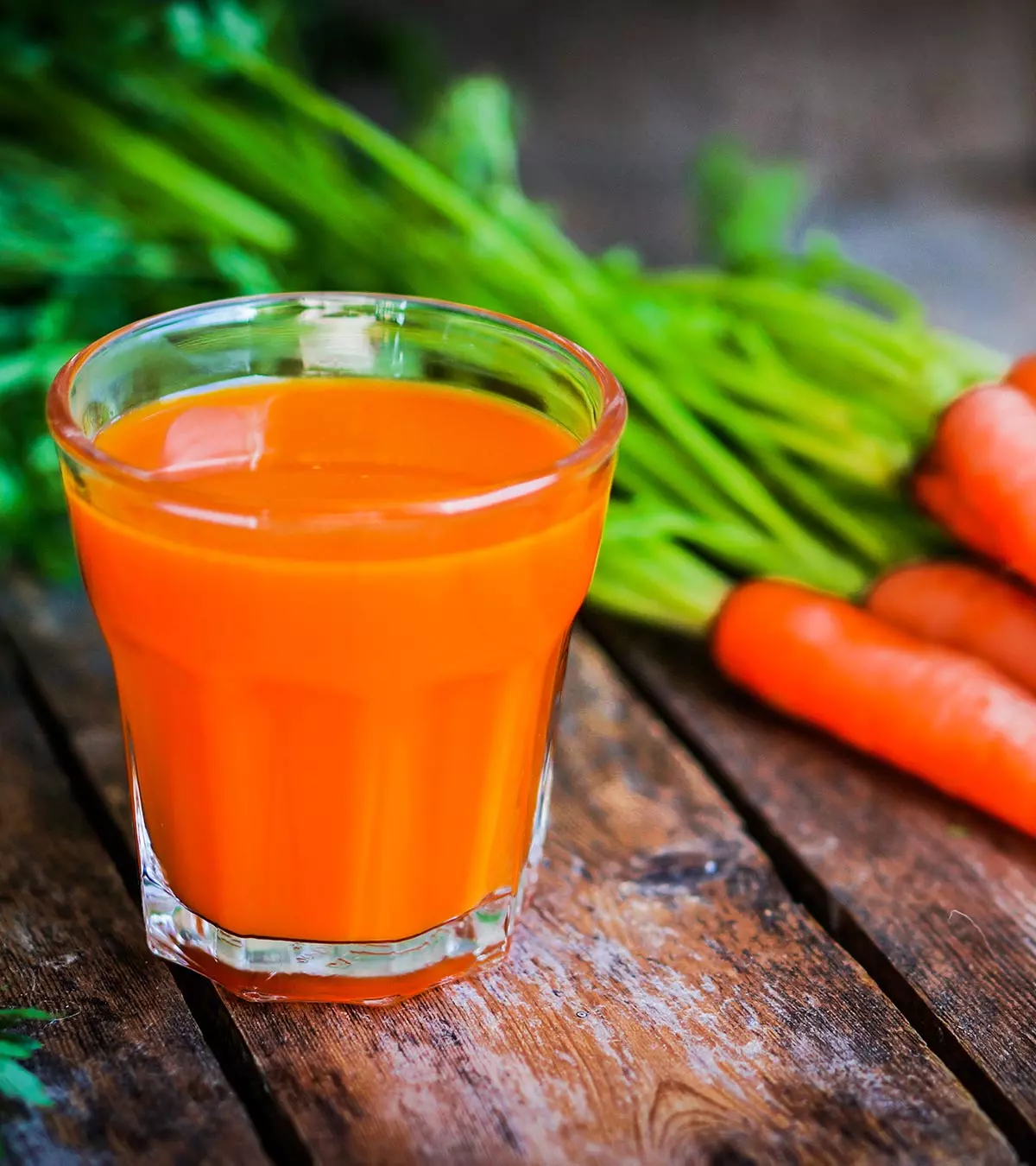
image: Shutterstock
Research states that “Maternal consumption of tree nuts, including walnuts, is associated with reduced nut allergies in offspring (1).” Walnuts are also nutritious and are rich in vitamins, minerals, essential oils, protein, and fiber. But when you are pregnant, you must be cautious of why, when, and how to eat walnuts.
Read this MomJunction to know more about consuming walnuts during pregnancy.
Key Pointers
- Walnuts are highly nutritious and can be beneficial during pregnancy if consumed in limited quantities.
- They are a rich source of omega-3 fatty acids, which are essential for fetal brain development.
- Walnuts also provide protein, fiber, and important minerals like magnesium and potassium.
- Eating walnuts has multiple benefits, such as promoting sleep and heart health, and preventing depression and excessive weight gain.
- However, pregnant women should avoid eating more than 10 walnuts per day to prevent digestive issues and excessive weight gain.
Is It Safe To Eat Walnuts (Akhrot) During Pregnancy?
Yes, it is safe to consume walnuts during pregnancy, considering that they are super rich in omega-3 fatty acids that contribute to the functioning of the brain and neurological health (2). They are also an important source of prenatal nutrition and are rich in proteins, vitamins, minerals, and antioxidants, all of which are essential for a healthy pregnancy and baby development.
What Are The Benefits Of Eating Walnuts During Pregnancy?
Eating walnuts during pregnancy is beneficial and necessary for maternal and fetal development:
1. Abundant in Omega-3s
Walnuts contain omega-3 fatty acids that are good for both mother and fetus. Fatty acids stimulate the activity of the brain cells, and also help in vision development of the fetus (3).
2. Good for the heart
Walnuts are rich in arginine, an amino acid that helps relax constricted blood vessels and stimulates blood flow. It, therefore, lowers the risk of high blood pressure and also manages cholesterol levels in the body (4).
 Expert says
Expert says3. Rich in antioxidants
The powerful antioxidants such as quinone, juglone, tannins, tellimagrandin, copper, and vitamin E present in walnuts protect the mother-to-be and the fetus from free radical damage. Eating walnuts could improve immunity and increase protection from infections (5).
4. High in folate
Walnuts are the best sources of folic acid that aids in the development of the brain and neurological system of the baby. It also lowers the risk of neural tube defects and congenital malformations in the baby (6), thus aiding in improved cognitive function.
5. Helps induce sleep
Melatonin is essential in your third trimester when sleep becomes a major concern. Walnuts help stimulate this hormone in your blood, therefore, inducing proper sleep and rest (7).
6. Protective against depression
It is natural to feel emotional and get depressed at times when you are pregnant. Walnut and walnut oil are valuable sources of omega-3 fatty acids, especially alpha-linolenic acid that helps improve physical and emotional wellness along with the overall mood of the mother-to-be (8).
7. Helps control excess weight gain
Rich in protein and fiber, walnuts satiate your hunger needs quickly and aid digestive health. They will keep you full for longer and may also help prevent excessive weight gain, supporting a healthy pregnancy (9).
8. Source of copper:
Walnuts are a rich source of copper that helps in the production of red blood cells, repair of tissues, and fetal growth and development (10) (11).
Next, we will learn about the nutritional value of this nut.
What Is The Nutritional Value In Walnuts?
Nutrients present in 100 grams of walnuts are as follows (12):
| NUTRIENT | AMOUNT |
|---|---|
| Calories | 654kcal |
| Water | 4.07g |
| Carbohydrates | 13.71g |
| Sugars | 2.61g |
| Protein | 15.23g |
| Fiber | 6.7g |
| Fat | 65.21g |
| Vitamins | |
| Thiamin (Vitamin B1) | 0.341mg |
| Riboflavin (Vitamin B2) | 0.150mg |
| Niacin (Vitamin B3) | 1.125mg |
| Pyridoxine (Vitamin B6) | 0.537mg |
| Folic acid (Vitamin B9) | 98mcg |
| Ascorbic acid (Vitamin C) | 1.3mg |
| Retinol (Vitamin A) | 20IU |
| Alpha-tocopherol (Vitamin E) | 0.70mg |
| Phylloquinone (Vitamin K) | 2.7mcg |
| Electrolytes | |
| Potassium | 441mg |
| Sodium | 2mg |
| Minerals | |
| Calcium | 98mg |
| Iron | 2.91mg |
| Phosphorus | 346mg |
| Magnesium | 158mg |
| Zinc | 3.09mg |
| Lipids | |
| Total saturated fatty acids | 6.126g |
| Total monounsaturated fatty acids | 8.933g |
| Total polyunsaturated fatty acids | 47.174g |
g=grams; mg=milligrams; IU=International Units
The nutritional quotient and the health benefits offered make walnuts a must-include food in your pregnancy diet helping you meet your daily nutrition requirements.
 Nutrition fact
Nutrition factHow Many Walnuts Can You Eat Per Day During Pregnancy?
You can have up to 30 grams of walnuts daily. That is equal to one-third cup or 10 whole walnuts (13). Consuming more than this every day can result in weight gain and digestive issues. Hence, consume walnuts in moderation, especially if you are taking other nuts, such as almonds. Eating almonds during pregnancy can also provide healthy fats and essential micronutrients like walnuts.
What Are The Possible Side Effects Of Eating Walnuts During Pregnancy?
Potential risks of overeating walnuts are as follows.
- It could lead to digestive issues such as diarrhea and bloating.
- If you are allergic to certain foods, be cautious before including walnuts as they may trigger the immune system causing allergic symptoms (14).
- Walnuts may also interfere with iron absorption leading to anemia in the long run (15).
- Since they are high in calories, overeating walnuts may cause excessive weight gain, complicating weight management during pregnancy.
Always take precautions when pregnant, including when eating walnuts, and seek medical advice if you are unsure about introducing new foods.
What Precautions Should You Take While Eating Walnuts?
- Consult your doctor before you plan to include them in your maternal diet.
- Prefer natural nuts. Avoid variants such as sugar coated, salt coated or candied walnuts to reduce risks of gestational diabetes.
- Consider buying standard and reliable brands of walnuts.
- If the kernels have dark spots and a rancid taste, avoid eating them.
- Store them in an airtight container or refrigerator to keep them fresh.
Walnuts can replace unhealthy snacks that you tend to consume between meals. You can also add them to the diet in other ways, which we discuss next.
How To Include Walnuts In Your Pregnancy Diet?
You might try these different ways of incorporating walnuts into your diet.
- Include whole or finely chopped nuts in salads or as toppings.
- Add them to baked goods, vegetable and fruit salads or meat and fish dishes for a rich and crunchy taste.
- Finely chop three to four walnuts and mix in a glass of water with two tablespoons of honey. It helps relieve insomnia, stress, and headache.
- Slice a banana, dip it in honey, and top with chopped walnuts. This snack will keep you full and may help you manage sweet cravings.
- Blend walnuts with healthy fats like avocados and leafy greens for a filling and nutritious smoothie.
Walnuts are healthy and should be included, albeit cautiously, in your pregnancy diet. Eat them in moderation for variety, but most importantly for health. If you are doubtful about consuming them or think you may be allergic to them, talk to your doctor first. Consuming walnuts with other dry fruits in pregnancy can be highly beneficial. So, ask your doctor about healthy nuts and seeds you can safely consume with walnuts during pregnancy.
Frequently Asked Questions
1. Can walnuts help with common pregnancy issues such as morning sickness and constipation?
Studies suggest that walnuts can help with constipation as they are a rich source of fiber. Every 100g of walnut contains 9.7g of fiber (18). However, no scientific studies report the beneficial effects of walnuts on morning sickness.
2. How do walnuts compare to other nuts in terms of nutrient content?
Among nuts, walnuts have the highest level of PUFA (polyunsaturated fatty acids). Walnuts also differ from other nuts in the number of bioactive compounds, such as phenolic compounds and micronutrient levels (19).
3. Can eating walnuts during pregnancy affect the baby’s weight at birth?
Walnuts have been found to offer numerous benefits to the mother and the developing baby. Still, limited research has been conducted on the correlation between the consumption of walnuts and its effect on the baby’s birth weight. Numerous factors influence the child’s birth weight, and the consumption of a balanced diet containing nuts, fruits, vegetables, and whole grains, is one of the major factors. Your nutrition counselor will help you understand the role of walnuts in your pregnancy diet.
4. Can consuming walnuts during pregnancy help prevent preeclampsia?
Although limited information is available, a diet higher in nuts, whole grains, fruits, vegetables, fish, and vegetable oils can reduce the risk of hypertensive disorders (20). High levels of maternal cholesterol during pregnancy can lead to an increased risk of preeclampsia and walnuts are known to help manage cholesterol levels in the body. However, before adding walnuts to your diet, make sure you consult your doctor (4)(21).
Infographic: Precautions To Take While Eating Walnuts During Pregnancy
Walnuts are an excellent source of nutrients such as protein, healthy fats, vitamin E, magnesium, zinc, and omega-3 fatty acids, which are essential for the mother’s health and the fetus’ development. However, since walnuts are potentially allergenic food, scour through the infographic below to know the precautions to take when eating walnuts during pregnancy. Illustration: Momjunction Design Team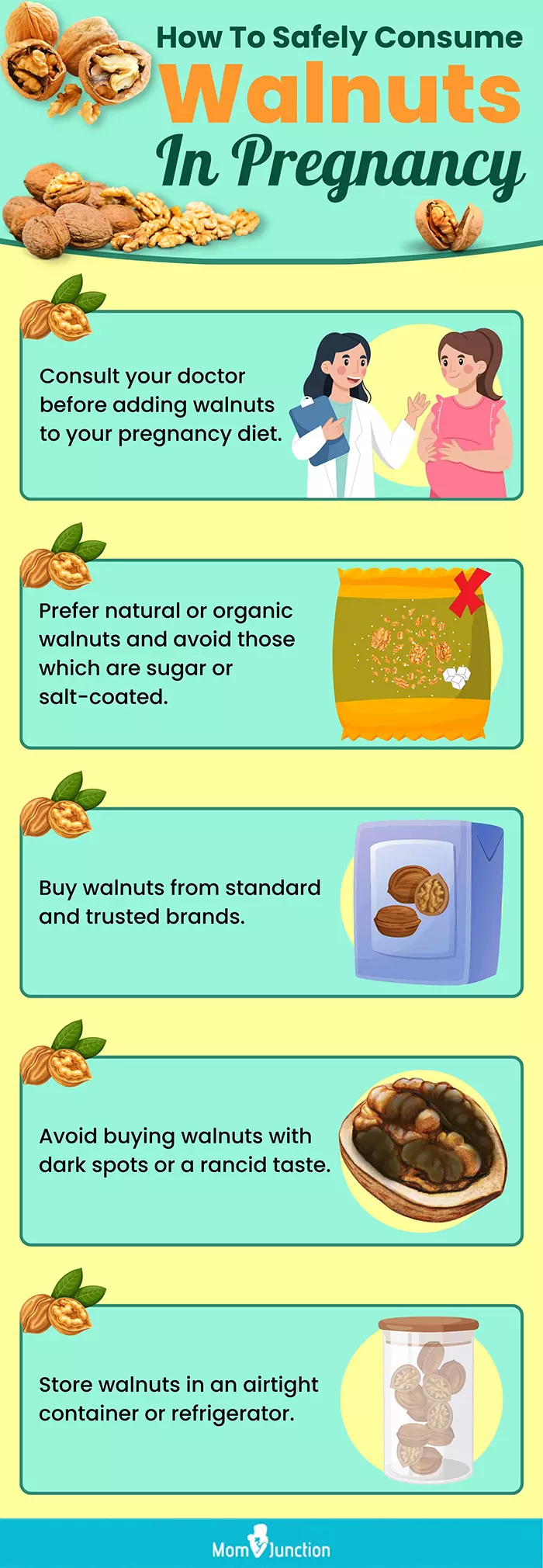
Do you know of any recipes with walnuts in them? Share with us in the comment section below.
Illustration: Walnuts During Pregnancy: Benefits And Side Effects
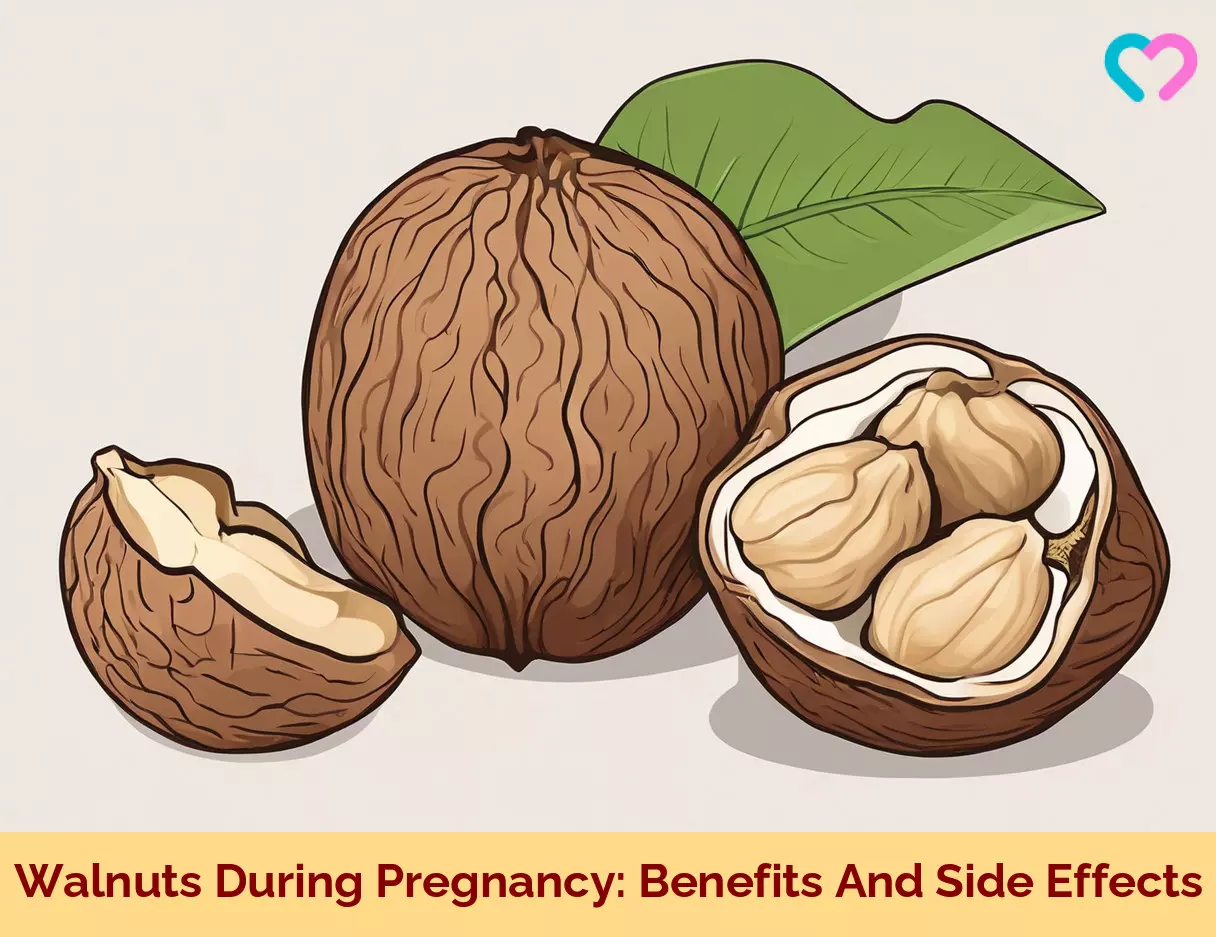
Image: Stable Diffusion/MomJunction Design Team
References
1. Erin Digitale; Eating nuts during pregnancy may protect baby from nut allergies; Stanford Medicine (2013)
2. Eating for Two: the Top 5 Nutrients for Pregnant Women; Bastyr University (2018)
3. L. Bellows et al.; Omega-3 Fatty Acids – 9.382; Colorado State University Extension (2018)
4. Nuts for the Heart; Harvard T.H. Chan School of Public Health (2018)
5. Elena Catanzaro et al.; Natural Products to Fight Cancer: A Focus on Juglans regia; Toxins (Basel) (2018)
6. Katarzyna Wiśniewska & Jacek Wysocki; The importance of folic acid in the primary prevention of congenital malformations; Archives Of Perinatal Medicine (2018)
7. Will Sansom; Walnuts contain melatonin, research shows; UT Health San Antonio (2006)
8. Ab Latif Wani et al.; Omega-3 fatty acids and the treatment of depression: a review of scientific evidence; NCBI (2015)
9. How to eat nuts the healthy way; Harvard Health Publishing (2012)
10. Carmen Cabrera et al.; Mineral content in legumes and nuts: contribution to the Spanish dietary intake; The Science of the Total Environment (2003)
11. Health Encyclopedia – Copper; URMC
12. Basic Report; Walnuts; USDA
13. Nuts and seeds; Better Health Channel, State of Victoria (2016)
14. Christine Bruhn et al.; Nuts: Safe Methods For Consumers To Handle, Store and Enjoy; University Of California Agriculture and Natural Resources (2010)
15. Frequently Asked Questions (FAQ); Iron Disorders Institute (2009)
16. Eating walnuts daily lowered bad cholesterol and may reduce cardiovascular disease risk; American Heart Association
18. Parle Milind and Khanna Deepa; Walnut: Not a hard nut to crack; International Research Journal of Pharmacy (2011)
19. Rávila Graziany Machado De Souza et al.;Nuts and Human Health Outcomes: A Systematic Review; MDPI (2017)
20. Abigail Perry et al.; Dietary factors that affect the risk of pre-eclampsia. NCBI(2022)
21. Änne Bartels and Keelin O’Donoghue; Cholesterol in pregnancy: a review of knowns and unknowns; NCBI (2011)
Community Experiences
Join the conversation and become a part of our nurturing community! Share your stories, experiences, and insights to connect with fellow parents.
Read full bio of Claudia Wilson
Read full bio of Rebecca Malachi
Read full bio of Swati Patwal
Read full bio of Lorraine Teron







